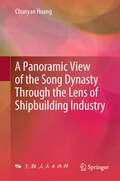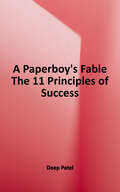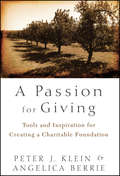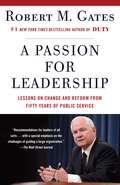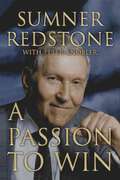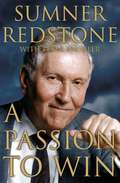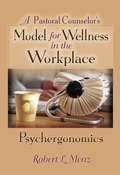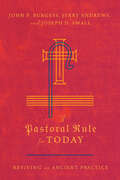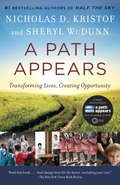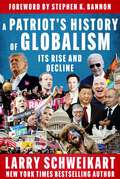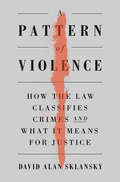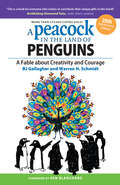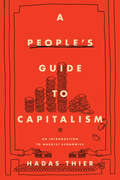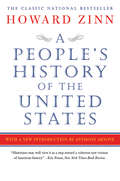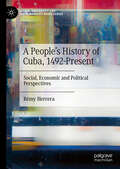- Table View
- List View
A Note on Real Estate Research
by Arthur I Segel Griffin H. James Ann CullenThis note provides a comprehensive research guide for real estate students, professionals, and executives. It includes lists of real estate industry trade organizations, publicly available research resources, books, and journals relevant to a wide range of financial and operational careers in real estate.
A Note on Seeking, Receiving, and Giving Advice
by David A. Garvin Joshua D. MargolisThis note examines the processes of seeking, receiving, and giving advice by drawing on both academic research and the lessons of skilled practitioners. It begins with a discussion of the potential benefits and costs of advice-seeking and advice-giving. The note then defines and distinguishes four related activities: advising, counseling, coaching and mentoring. Next, it describes the primary stages or steps in the advising process; each stage is examined from the perspective of both advice-seekers and advice-givers. The note concludes with recommendations for practice, listing a number of pitfalls to avoid when seeking, receiving, and giving advice as well as several guidelines and best practices.
A Note on Trust
by James M. SharpeThe effective manager and leader understands and appreciates trust at both the personal and the organizational levels. Most managers focus more on being trusted than on trusting. The best way to be trusted is to be worthy of trust-to be trustworthy.
A Note on U.S. Bankruptcy Law: Individuals, Firms, and Sub-State Entities
by Laura Phillips SawyerIndustry and Background Note
A Note on Valuation in Private Equity
by Paul A. GompersThis note will provide an overview of valuation methodologies in private equity.
A Note on the Affordable Care Act and the U.S. Health Care System
by Joseph L. Bower Michael NorrisThis note provides an overview of the U.S. health care system as it stood in 2014, including an overview of hospitals, doctors, insurance companies, and other health care providers. It also discusses the major political actions on health care in the 20th century, including Medicare, Medicaid, and the early planning process for the Affordable Care Act at the beginning of the Obama presidency.
A Note on the Legal and Tax Implications of Founders' Equity Splits
by Noam Wasserman Lauren BarleyThis note summarizes key legal and tax issues that founders should consider as they contemplate an equity split and ownership structure. Specific issues covered include: why founders should not delay splitting the equity, and whether they should involve an attorney or accountant when they do; the importance of considering intellectual property (IP) issues when splitting the equity and the need to do so consistent with Section 351 of the Internal Revenue Code; and the need to make timely and valid Section 83(b) elections if the founders adopt vesting as part of the equity split.
A Note on the Snack Food Industry
by David Bell Amram Migdal Kerry HermanThis note provides an overview of the snacking industry in 2017.
A Panoramic View of the Song Dynasty Through the Lens of Shipbuilding Industry
by Chunyan HuangThis book examines the impact of shipbuilding on the society of the Song Dynasty from multiple perspectives and points out the positive contribution of ancient manufacture industry to social development at that time. It explores some virgin territories and presents strong originality, such as the inland navigation methods in the Song Dynasty, the system of gods and goddesses in the aquatic world, and the defense system of the Yangtze River and the sea in the Southern Song Dynasty. It includes the markets in the coastal areas, the perception and imagery of the sea, the maritime disasters and rescues, the river courses and sea warfare, and the management of private ships in the Song Dynasty. On top of that, it provides fresh analysis and new perspectives on some issues that have been studied, such as Lisheng, shapes and sizes of ships, and vehicles and ships in the Song Dynasty.
A Paperboy's Fable: The 11 Principles of Success
by Deep PatelA young man learns that there is more to being successful than the bottom line. A Paperboy's Fable is a concise, entertaining fable that makes revolutionary points using age-old principles. Whether someone is opening a lemonade stand or leading a startup software company, the 11 Principles of Success make A Paperboy's Fable a timeless tale that is as fresh as it is universal. A Paperboy's Fable also features interviews with many professors, entrepreneurs, CEO’s and General David Petraeus.
A Passion for Giving
by Peter Klein Angelica BerriePraise for A Passion for Giving"Klein and Berrie have produced a great book that manages to make complex issues simple. It blends with grace and craft the deep with the practical and the concrete with the philosophical. It is a precious tool for both the neophyte and the experienced philanthropist. It is both a useful manual and a profound exploration of the core values of giving. In a word, this book is a true gift."-Andres Spokoiny, President and CEO, Jewish Funders Network"Through the years, many people have asked us why we set up our family foundation and how we went about accomplishing this goal. The 'why' is easy to answer: we are fortunate enough to be able to give back and help others in need. The 'how' is perfectly explained in this compelling and very informative book by Peter Klein and Angelica Berrie."-Marilyn and Barry Rubenstein, The Marilyn and Barry Rubenstein Family Foundation "This book should be required reading for new donors and experienced philanthropists. Klein and Berrie have crafted a winning combination of practical guidelines and heartfelt personal accounts to create a moving call to action for anyone who wishes to give back. The stories remind us that when philanthropy, an intensely personal journey, is coupled with deep learning, transformation occurs for both the recipient and the donor."-Debra Mesch, PhD,Professor and Director, Women's Philanthropy Institute, IUPUI"I wish I could have had this book to guide me and refer to as my wife, Andrea, and I launched our Harbor Glow Foundation a decade ago. We would have been much more efficient in the process and more focused in our direction from the get-go. Peter and Angelica capture the spirit and nitty-gritty of a family foundation."-Michael Leeds, Co-Chair, Harbor Glow Foundation
A Passion for Leadership
by Robert M GatesFrom the former secretary of defense and author of the acclaimed #1 best-selling memoir Duty, a characteristically direct, informed, and urgent assessment of why big institutions are failing us and how smart, committed leadership can effect real improvement regardless of scale. Across the realms of civic and private enterprise alike, bureaucracies vitally impact our security, freedoms, and everyday life. With so much at stake, competence, efficiency, and fiscal prudence are essential, yet Americans know these institutions fall short. Many despair that they are too big and too hard to reform. Robert Gates disagrees. Having led change successfully at three monumental organizations--the CIA, Texas A&M University, and the Department of Defense--he offers us the ultimate insider's look at how major bureaus, organizations, and companies can be transformed, which is by turns heartening and inspiring and always instructive. With practical, nuanced advice on tailoring reform to the operative culture (we see how Gates worked within the system to increase diversity at Texas A&M); effecting change within committees; engaging the power of compromise ("In the real world of bureaucratic institutions, you almost never get all you want when you want it"); and listening and responding to your team, Gates brings the full weight of his wisdom, candor, and devotion to civic duty to inspire others to lead desperately needed change.From the Hardcover edition.
A Passion for Leadership: Lessons on Change and Reform from Fifty Years of Public Service
by Robert M GatesFrom the former secretary of defense and author of the acclaimed #1 best-selling memoir Duty, a characteristically direct, informed, and urgent assessment of why big institutions are failing us and how smart, committed leadership can effect real improvement regardless of scale. Across the realms of civic and private enterprise alike, bureaucracies vitally impact our security, freedoms, and everyday life. With so much at stake, competence, efficiency, and fiscal prudence are essential, yet Americans know these institutions fall short. Many despair that they are too big and too hard to reform. Robert Gates disagrees. Having led change successfully at three monumental organizations—the CIA, Texas A&M University, and the Department of Defense—he offers us the ultimate insider’s look at how major bureaus, organizations, and companies can be transformed, which is by turns heartening and inspiring and always instructive. With practical, nuanced advice on tailoring reform to the operative culture (we see how Gates worked within the system to increase diversity at Texas A&M); effecting change within committees; engaging the power of compromise (“In the real world of bureaucratic institutions, you almost never get all you want when you want it”); and listening and responding to your team, Gates brings the full weight of his wisdom, candor, and devotion to civic duty to inspire others to lead desperately needed change.From the Hardcover edition.
A Passion for Leadership: Lessons on Change and Reform from Fifty Years of Public Service
by Robert M GatesFrom the former secretary of defense and author of the acclaimed #1 best-selling memoir Duty, a characteristically direct, informed, and urgent assessment of why big institutions are failing us and how smart, committed leadership can effect real improvement regardless of scale. Across the realms of civic and private enterprise alike, bureaucracies vitally impact our security, freedoms, and everyday life. With so much at stake, competence, efficiency, and fiscal prudence are essential, yet Americans know these institutions fall short. Many despair that they are too big and too hard to reform. Robert Gates disagrees. Having led change successfully at three monumental organizations—the CIA, Texas A&M University, and the Department of Defense—he offers us the ultimate insider’s look at how major bureaus, organizations, and companies can be transformed, which is by turns heartening and inspiring and always instructive. With practical, nuanced advice on tailoring reform to the operative culture (we see how Gates worked within the system to increase diversity at Texas A&M); effecting change within committees; engaging the power of compromise (“In the real world of bureaucratic institutions, you almost never get all you want when you want it”); and listening and responding to your team, Gates brings the full weight of his wisdom, candor, and devotion to civic duty to inspire others to lead desperately needed change.From the Hardcover edition.
A Passion to Win
by Peter Knobler Sumner RedstoneA titan of modern media, Sumner Redstone shares how he became the head of one of the world&’s great media empires and one of the richest men in the entertainment business.In one of the most fascinating and eye-opening business autobiographies written, Sumner Redstone shares the unvarnished story of how he overcame significant obstacles on his trek to build a vast media and entertainment engine. A Passion to Win gives a riveting look behind the scenes at the highly charged negotiations that won Redstone both Viacom and Paramount, revealing the intense business calculations and strong emotions of Redstone&’s head-to-head confrontations with adversaries such as Barry Diller and H. Wayne Huizenga. In a book that shows readers what it takes to win, Redstone shares the rollercoaster journey that led him to become the head of a wildly successful company and the mind behind the revolution of the video industry.
A Passion to Win
by Sumner RedstoneA titan of modern media, Viacom Chair-man Sumner Redstone reveals how he battled his way to become the head of one of the world's great media empires, and the richest man in entertainment. In one of the most fascinating business autobiographies of this or any other year, Sumner Redstone tells the unvarnished story of how he overcame every obstacle to build a vast media and entertainment engine that includes Paramount Pictures, MTV, Nickelodeon, Blockbuster, Simon & Schuster, and now CBS. A larger-than-life figure in the grand tradition of the Hearsts, Paleys, and Pulitzers, and voted in a recent survey of 600 corporate executives as the number-one most inspiring CEO, this is the man who can truly say, "I am Viacom. " A Passion to Win gives a riveting look behind the scenes at the highly charged negotiations that won Redstone both Viacom and Paramount. The book reveals the intense business calculations and strong emotions of Redstone's head-to-head confrontations with such adversaries as Barry Diller and H. Wayne Huizenga. A Passion to Win takes the reader along on the financial roller-coaster ride that began when Blockbuster went into the tank, risking Redstone's fortune and life's work. By the end of that ride, Redstone had righted his company and revolutionized the video industry. In a world of high-visibility corporate battles, Redstone pulls no punches. This is the man who faced down a pack of thugs when they threatened producer Bob Evans during the filming of The Cotton Club. And this is a book that shows the reader what it takes to win. Behind it all is the same iron will that helped Redstone to survive a deadly fire at Boston's Copley Plaza Hotel by clinging with one hand to a third-story ledge before being rescued -- with burns so severe over nearly half his body that doctors feared he would die. Born in a Boston tenement, he graduated first in his class at Boston Latin, went through Harvard in three years, was chosen for a special cryptography unit in the U. S. Army whose assignment was to crack Japanese codes during World War II, then, after Harvard Law School, successfully pleaded cases before the U. S. Court of Appeals and the U. S. Supreme Court -- all of this before embarking on his astounding business career. Never before has Sumner Redstone revealed himself so candidly, and now, with the assistance of writer Peter Knobler (who co-wrote attorney Daniel Petrocelli's bestseller Triumph of Justice, about the O. J. Simpson civil suit), he has produced an inspirational life story that will command major attention.
A Pastoral Counselor's Model for Wellness in the Workplace: Psychergonomics
by Richard L Dayringer Robert L MenzFrom the author: If this information helps the professional caregiver, it will help the employee; if it helps the employee, it will help the company! A Pastoral Counselor's Model for Wellness in the Workplace: Psychergonomics takes the concept of ergonomics beyond physical and environmental concerns to include a holistic interconnectedness of mind, body, and spirit. This unique book examines how psychosocial factors like family, conflict, emotional stress, addiction, and financial pressures can impact an employee's health and well-being. It incorporates a new paradigm of health care into wellness in the corporate setting, adding a new dimension to human health and safety. A Pastoral Counselor's Model for Wellness in the Workplace explores the workplace reality that illness and injury are not just the result of simple linear causes. Companies have data to determine how much they spend on insurance and worker's compensation claims but no way to measure the effects absenteeism, productivity, quality of work, and employee morale have on operating expenses. Using a holistic model of understanding, employers may now consider that an injury may be the result of an employee's depression, an accident might be caused by substance abuse, and an illness could be brought on by being worried "sick." A Pastoral Counselor's Model for Wellness in the Workplace examines how employees-and employers-can be affected by: money troubles marriage problems depression grief stress conflicts addictions alcoholism anger A Pastoral Counselor's Model for Wellness in the Workplace: Psychergonomics is an essential resource for all helping professions, particularly in the areas of mental health and addiction. The book is an invaluable tool for pastoral counselors, chaplains, human resources managers, employee assistance professionals, psychotherapists, health care professionals, and educators.
A Pastoral Rule for Today: Reviving an Ancient Practice
by John P. Burgess Joseph D. Small Jerry AndrewsThe pastoral office has always been a difficult calling. Today, the pastor is often asked to fulfill multiple roles: preacher, teacher, therapist, administrator, CEO. How can pastors thrive amid such demands? What is needed is a contemporary pastoral rule: a pattern for ministry that both encourages pastors and enables them to focus on what is most important in their pastoral task. This book, coauthored by three experts with decades of practical experience, explains how relying on a pastoral rule has benefited communities throughout the church's history and how such rules have functioned in the lives and work of figures such as Augustine, Calvin, Wesley, and Bonhoeffer. It also provides concrete advice on how pastors can develop and keep a rule that will help both them and their congregations to flourish.
A Path Appears: Transforming Lives, Creating Opportunity
by Nicholas D. Kristof Sheryl WudunnAn essential, galvanizing narrative about making a difference here and abroad--a road map to becoming the most effective global citizens we can be.In their number one New York Times best seller Half the Sky, husband-and-wife team Nicholas D. Kristof and Sheryl WuDunn brought to light struggles faced by women and girls around the globe, and showcased individuals and institutions working to address oppression and expand opportunity. A Path Appears is even more ambitious in scale: nothing less than a sweeping tapestry of people who are making the world a better place and a guide to the ways that we can do the same--whether with a donation of $5 or $5 million, with our time, by capitalizing on our skills as individuals, or by using the resources of our businesses. With scrupulous research and on-the-ground reporting, the authors assay the art and science of giving, identify successful local and global initiatives, and share astonishing stories from the front lines of social progress. We see the compelling, inspiring truth of how real people have changed the world, upending the idea that one person can't make a difference. We meet people like Dr. Gary Slutkin, who developed his landmark Cure Violence program to combat inner-city conflicts in the United States by applying principles of epidemiology; Lester Strong, who left a career as a high-powered television anchor to run an organization bringing in older Americans to tutor students in public schools across the country; MIT development economist Esther Duflo, whose pioneering studies of aid effectiveness have revealed new truths about, among other things, the power of hope; and Jessica Posner and Kennedy Odede, who are transforming Kenya's most notorious slum by expanding educational opportunities for girls. A Path Appears offers practical, results-driven advice on how best each of us can give and reveals the lasting benefits we gain in return. Kristof and WuDunn know better than most how many urgent challenges communities around the world face today. Here they offer a timely beacon of hope for our collective future.From the Hardcover edition.
A Patriot's History of Globalism: Its Rise and Decline
by Larry SchweikartLarry Schweikart has won wide acclaim for his number one New York Times bestseller, A Patriot&’s History of the United States. Now, with A Patriot's History of Globalism, Schweikart shows that globalism, or the attempt to form a one-world government is nothing new. In the wake of Napoleon's defeat in 1814, the globalists of the day (mostly monarchs) sought to create a governing arrangement for Europe. Within forty years, three of the major participants were at war with each other. After World War I, they tried again at Versailles, this time even more aggressively changing boundaries of nations and moving populations. That attempt only lasted twenty years before another major war between the participants. Yet again, after World War II, globalists used the threat of the atomic bomb to try to form an international government with the United Nations. Most recently, the World Economic Forum and World Health Organization are attempting to minimize nationalities with global control of money and medicine. But there are signs this tide has been reversed and is finally in decline. A Patriot's History of Globalism is the gold standard text for the history of globalism.
A Pattern of Violence: How the Law Classifies Crimes and What It Means for Justice
by David Alan SklanskyA law professor and former prosecutor reveals how inconsistent ideas about violence, enshrined in law, are at the root of the problems that plague our entire criminal justice system—from mass incarceration to police brutality. We take for granted that some crimes are violent and others aren’t. But how do we decide what counts as a violent act? David Alan Sklansky argues that legal notions about violence—its definition, causes, and moral significance—are functions of political choices, not eternal truths. And these choices are central to failures of our criminal justice system. The common distinction between violent and nonviolent acts, for example, played virtually no role in criminal law before the latter half of the twentieth century. Yet to this day, with more crimes than ever called “violent,” this distinction determines how we judge the seriousness of an offense, as well as the perpetrator’s debt and danger to society. Similarly, criminal law today treats violence as a pathology of individual character. But in other areas of law, including the procedural law that covers police conduct, the situational context of violence carries more weight. The result of these inconsistencies, and of society’s unique fear of violence since the 1960s, has been an application of law that reinforces inequities of race and class, undermining law’s legitimacy. A Pattern of Violence shows that novel legal philosophies of violence have motivated mass incarceration, blunted efforts to hold police accountable, constrained responses to sexual assault and domestic abuse, pushed juvenile offenders into adult prisons, encouraged toleration of prison violence, and limited responses to mass shootings. Reforming legal notions of violence is therefore an essential step toward justice.
A Peacock in the Land of Penguins: A Fable about Creativity and Courage
by Warren H. Schmidt BJ GallagherThis classic pioneering book provides keen insight into workplace diversity. With new tips, tools, and strategies for peacocks and penguins alike, your organization will flourish and take flight! Through the story of Perry the Peacock and his fine feathered friends, authors BJ Gallagher and Warren H. Schmidt bring to life the challenges of birds of different feathers who struggle to be successful in the conformity-minded Land of Penguins. Their travails illuminate the challenges of creating a pluralistic corporate culture in which the talent, energy, and commitment of all employees are fully engaged. People who have new ideas that differ from business as usual are often ignored or criticized for the very thing that makes them valuable: their originality and creativity. This unique book helps organizations break out of "penguin thinking" in order to tap into and leverage the creativity of diversity. Learn how to cultivate an organizational culture in which new ideas can flourish and innovation can take flight.
A People's Guide to Capitalism: An Introduction to Marxist Economics
by Hadas ThierA lively, accessible, and timely guide to Marxist economics for those who want to understand and dismantle the world of the 1%. Economists regularly promote Capitalism as the greatest system ever to grace the planet. With the same breath, they implore us to leave the job of understanding the magical powers of the market to the &“experts.&” Despite the efforts of these mainstream commentators to convince us otherwise, many of us have begun to question why this system has produced such vast inequality and wanton disregard for its own environmental destruction. This book offers answers to exactly these questions on their own terms: in the form of a radical economic theory.&“Thier&’s urgently needed book strips away jargon to make Marx&’s essential work accessible to today&’s diverse mass movements.&” —Sarah Leonard, contributing editor to The Nation &“A great book for proletarian chain-breaking.&” —Rob Larson, author of Bit Tyrants: The Political Economy of Silicon Valley&“Thier unpacks the mystery of capitalist inequality with lucid and accessible prose . . . . We will need books like A People&’s Guide to help us make sense of the root causes of the financial crises that shape so many of our struggles today.&” —Keeanga-Yamahtta Taylor, author of Race for Profit: How Banks and the Real Estate Industry Undermined Black Homeownership &“Ranging from exploitation at work to the operations of modern finance, this book takes the reader through a fine-tuned introduction to Marx&’s analysis of the modern economy . . . . Thier combines theoretical explanation with contemporary examples to illuminate the inner workings of capitalism . . . . Reminds us of the urgent need for alternatives to a crisis-ridden system.&” —David McNally, author of Blood and Money
A People's History of the United States: 1492-present (P. S. Series #1)
by Howard ZinnTHE CLASSIC NATIONAL BESTSELLER"A wonderful, splendid book—a book that should be read by every American, student or otherwise, who wants to understand his country, its true history, and its hope for the future." –Howard FastHistorian Howard Zinn’s A People’s History of the United States chronicles American history from the bottom up, throwing out the official narrative taught in schools—with its emphasis on great men in high places—to focus on the street, the home, and the workplace.Known for its lively, clear prose as well as its scholarly research, it is the only volume to tell America's story from the point of view of—and in the words of—America's women, factory workers, African-Americans, Native Americans, the working poor, and immigrant laborers. As Zinn shows, many of our country's greatest battles—the fights for a fair wage, an eight-hour workday, child-labor laws, health and safety standards, universal suffrage, women's rights, racial equality—were carried out at the grassroots level, against bloody resistance. Covering Christopher Columbus's arrival through President Clinton's first term, A People's History of the United States features insightful analysis of the most important events in our history. This edition also includes an introduction by Anthony Arnove, who wrote, directed, and produced The People Speak with Zinn and who coauthored, with Zinn, Voices of a People’s History of the United States.
A People’s History of Cuba, 1492-Present: Social, Economic and Political Perspectives (Global University for Sustainability Book Series)
by Rémy HerreraThis book presents a comprehensive history of the political economy of Cuba from 1492 to the present day. It chronologically analyses the major economic, social and political transformations that have occurred in Cuba and explores the impact on the country’s development over the long run. The first section analyses the period from 1492 to 1898, from colonial conquest to the war of independence. The next two sections cover the history of Cuba’s economy and society up to the end of the twentieth century, examining in detail US imperialist domination, guerrilla warfare (1956-1958) and the Cuban Revolution from 1959 to the fall of the Soviet Union in 1990-1991. The final part analyses Cuba’s economy and society in transition up to the present day. Written in a comprehensive academic style while maintaining a focus on the perspectives and experience of ordinary citizens throughout, the book will be of interest to a wide readership including scholars of economic history, political and social history, development economics and political economy.

